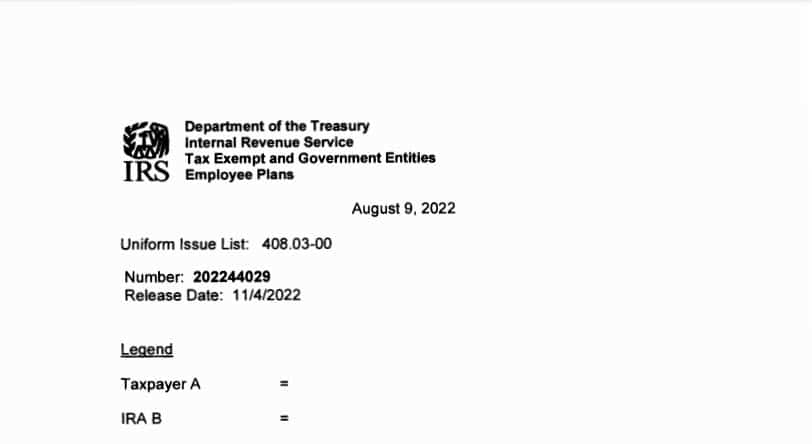IRS Grants Waiver of 60-Day Requirement for Fraud Victim to Make Rollover Contribution
The Internal Revenue Code provides the IRS with authority to waive the 60-day IRA rollover requirement “where the failure to waive such requirement would be against equity or good conscience, including casualty, disaster, or other events beyond the reasonable control of the individual subject to such requirement.” See generally Accepting Late Rollover Contributions.
The IRS has exercised this authority and provided a self-certification process to allow individuals in certain circumstances to make a rollover contribution to an IRA after the 60-day rollover window has closed. See Rev. Proc. 2020-46. The guidance provides relief to taxpayers that are unable to complete a rollover because of an error by a financial institution, postal error, the distribution check was misplaced or never cashed, and several other situations.
If your situation is not covered, then you must seek a private letter ruling from the IRS to request that they exercise their authority to waive the 60-day period. Otherwise, the distribution is taxable.
The private letter ruling process generally requires filing fees of $10,000 to $12,500. Speaking from pre-COIVD experience, the process to obtain a ruling can take a year or more. It likely takes longer now.
Taxpayers that are unable to make a rollover contribution due to fraud is not on the list of situations in which a taxpayer can self-certify.
In a recent private letter ruling (PLR 202244029), the IRS exercised its authority to allow a fraud victim to make a rollover contribution to her IRA.
The victim in the ruling received a bogus alert on her computer. The alert guided her to make a series of calls to fraudsters, who claimed to be representatives of a financial institutions and a federal agency. The fraudsters lied to the victim and told her that hackers had taken money from her account. They led her to believe that she needed to work with them to secure her assets, when in fact they were stealing her money.
The fraudsters also told her that a hacker had placed illegal material on her computer, which they claimed placed her at risk of federal criminal prosecution for mere possession of the materials. Relying on her fear, the fraudsters warned her to stay silent until they secured her assets for her.
It is unclear if the taxpayer actually recovered her funds from the fraudsters or if she had other funds to place replace the missing funds. All we know is that the taxpayer desired to obtain a waiver to put funds back into her IRA.
It is unfortunate that the victim had to go through the lengthy PLR process and likely pay a hefty filing fee in order to obtain a waiver of the 60-day rollover period.
The IRS should consider adding taxpayers that have been a victim of fraud to the list circumstance in which a taxpayer can self-certify qualification for a late rollover contribution.



